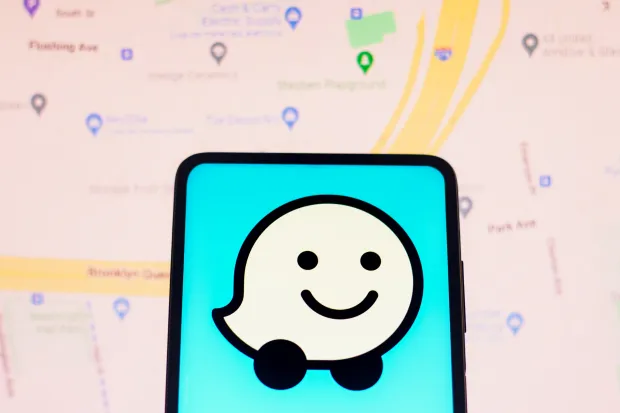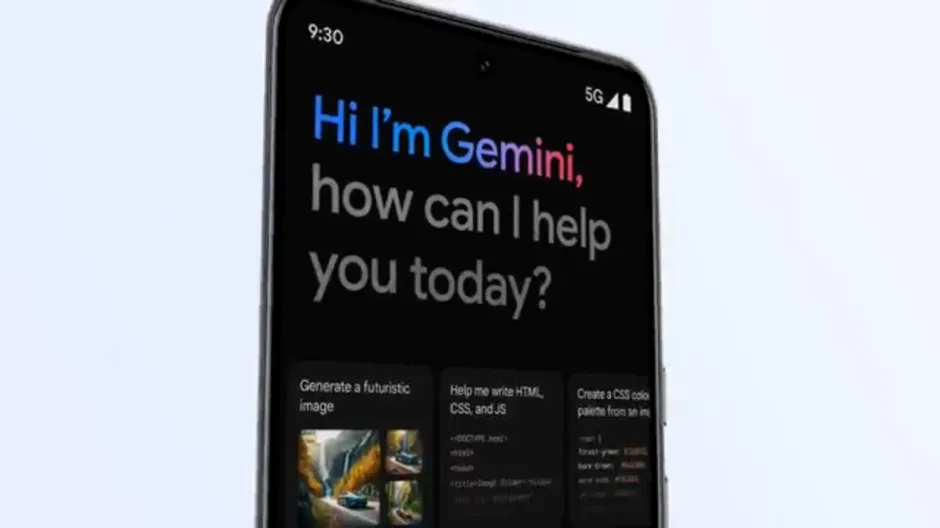
Drivers warned of ‘important update’ to Waze as long-running car navigation feature is AXED
Introduction
For years, Waze users have relied on Google Assistant’s voice commands to navigate roads hands‑free, report hazards, and adjust routes without taking their eyes off the windshield. However, a significant change is on the horizon: Google Assistant’s integration within Waze on iOS will soon be phased out and replaced by Google’s next‑generation AI voice agent, Gemini. This transition marks the end of a long‑running navigation feature for iPhone owners, while Android users will continue to see the familiar Assistant interface—at least for now. In this comprehensive article, we unpack the reasons behind the update, explore Gemini’s capabilities, detail how to make the switch, and offer expert guidance on what drivers can expect from the revamped voice experience in Waze.
Why Waze Is Replacing Google Assistant on iOS
The Case for Change
Since its launch in 2016, Google Assistant has powered voice interactions across Android devices and Google apps, including maps, messaging, and smart home controls. On Waze, Assistant enabled spoken commands for reporting accidents, hazards, and speed traps, as well as requesting alternate routes or toll‑free detours. Despite its popularity, Assistant’s performance within the Waze iOS app has suffered from intermittent glitches—failed command recognition, delayed responses, and occasional crashes.
By transitioning to Gemini—a more advanced, AI‑driven voice model—Google aims to deliver a smoother, more intuitive experience. Unlike Assistant, which requires users to memorize specific “trigger” phrases, Gemini understands natural, conversational language and can ask follow‑up questions to clarify ambiguous requests. This upgrade not only addresses technical shortcomings but also aligns with broader trends in AI: moving from rigid command structures to human‑like dialogue.
A Platform‑Specific Rollout
It’s important to note that, initially, only Waze on iOS will undergo this change. Android users will retain access to Google Assistant in Waze until further notice. This staggered approach allows Google to monitor Gemini’s performance in a controlled environment, gather feedback from iPhone users, and fine‑tune the integration before deploying it across all platforms.
Understanding Gemini: Google’s New AI Voice Assistant
From Assistant to Gemini
Gemini represents Google’s latest foray into conversational AI. Built on advanced large‑language models (LLMs) and multimodal capabilities, Gemini can process text, voice, images, and even code. For Waze integration, three features stand out:
Natural Language Understanding
Instead of “Hey Google, report traffic ahead,” users can say, “There’s slow traffic on my route,” and Gemini will interpret the meaning and log the right report.
Contextual Follow‑Ups
If you say, “Avoid toll roads,” Gemini may ask, “Sure—do you prefer the fastest or the shortest alternate route?” ensuring preferences are honored.
Adaptive Learning
Over time, Gemini adapts to individual speech patterns and frequently used commands, reducing misinterpretations and speeding response times.
These enhancements aim to make in‑car voice controls less of a chore and more like conversing with a knowledgeable co‑pilot.
Technical Improvements
Under the hood, Gemini leverages:
-
Neural Machine Translation (NMT) techniques to convert voice into structured data with higher fidelity.
-
Edge‑Server Orchestration, which routes audio processing to the optimal mix of on‑device and cloud servers for minimal latency.
-
Dynamic Prompt Engineering, enabling the assistant to adjust its questioning style based on user history and error rates.
These improvements should translate into fewer “I’m sorry, I didn’t catch that” prompts and a more reliable hands‑free navigation experience.
How the Update Will Roll Out
Timeline and Availability
- Announcement Date: Early April 2025
- iOS Phase‑Out Start: April 15, 2025
- Full Gemini Integration: Rolling through late May 2025
- Android Status: Unchanged until at least Q4 2025
iPhone users will receive an in‑app notification when the feature flag is enabled in their region. Upon first launch post-update, Waze will prompt users to grant microphone and speech‑to‑text permissions previously held by Google Assistant.
Transition Steps for Users
- Update Waze: Ensure you have the latest iOS release (version 6.8.x or higher).
- Grant Permissions: The update will request new permissions for audio recording and speech recognition under your iOS settings—accept these.
- Tutorial Prompt: On launch, Waze will offer a brief (30‑second) tutorial on how to phrase natural language commands for Gemini.
- Testing Mode: A limited “sandbox” mode allows you to test Gemini commands without affecting your real navigation data—ideal for new users.
- Full Activation: After trial commands, Gemini fully replaces Assistant, handling all voice tasks within Waze.
Users can switch back to manual tap controls at any time via the Waze settings menu, but re‑enabling Google Assistant on iOS will not be possible once Gemini is live.
What Changes for Waze Functionality
Voice‑Activated Reporting
Old Workflow (Assistant):
-
“OK Google, report accident”
-
Assistant: “On which side of the road?”
-
User: “Left side.”
-
Assistant logs report.
New Workflow (Gemini):
-
“There’s a car crash ahead on the left.”
-
Gemini: “Got it—logging crash on the left. Anything else?”
By collapsing multiple prompts into a single conversational interaction, Gemini expedites driver inputs, minimizing distraction.
Route Queries and Rerouting
With Assistant, users often needed precise phrasing for rerouting, such as “OK Google, navigate me home via no toll roads.” Gemini understands broader intents:
-
Casual Request: “Can we skip the tolls today?”
-
Follow-Up Query: “Prefer the fastest toll‑free route or avoid highways too?”
This refined exchange cuts down on mis‑clicks and ensures the driver’s preferences are applied correctly.
Search and POI Integration
Drivers frequently use voice to locate fuel stations, eateries, or rest stops. Earlier, Assistant would require: “Find the nearest gas station.” Now, Gemini allows:
-
Natural Inquiry: “I’m low on fuel—where’s the cheapest station nearby?”
-
Smart Filtering: Gemini cross‑references price data (where available) and suggests the optimal stop based on current route and brand loyalty settings.
Emergency and Hands‑Free Safety
Many users rely on voice commands to report hazards quickly and safely. The speed and accuracy improvements in Gemini are crucial when logging:
-
Speed cameras
-
Debris on road
-
Heavy traffic or road closures
Automated crash detection integration will trigger immediate voice prompts, allowing drivers to request assistance or dispatch emergency services if needed.
User Reception and Concerns
Positive Feedback
-
Smooth Transitions: Early adopters praise the fluidity of Gemini’s responses compared to the clunky, command‑based Assistant.
-
Reduced Glitches: Beta testers report fewer app crashes during voice interactions.
-
Human‑Like Dialogue: Many appreciate the follow‑up questions that clarify intent without requiring exact phrasing.
Criticisms and Skepticism
-
Attachment to Assistant: Some users lament losing a familiar interface and fear a learning curve.
-
Privacy Worries: With more natural language processing, concerns about voice data storage and usage have resurfaced—especially among privacy‑conscious drivers.
-
Initial Bugs: A handful of users on Reddit note odd misinterpretations in the first beta rollouts, such as Gemini logging incorrect hazard types when given non‑standard phrasing.
Google and Waze have pledged to monitor feedback closely, issuing weekly fixes to address misrecognitions and to refine Gemini’s contextual understanding.
Expert Analysis: Pros and Cons
Advantages of the Update
Improved Usability
Gemini’s conversational model reduces driver cognitive load, allowing more intuitive, conversational interactions.
Enhanced Safety
Fewer multi-step prompts mean drivers can issue commands faster, minimizing time spent with eyes off the road.
Future‑Proofing
As vehicle infotainment systems embrace AI, early adoption of advanced voice tech positions Waze as a leading navigation solution.
Potential Drawbacks
Privacy and Data Handling
Gemini’s reliance on cloud‑based processing may raise concerns about voice data retention and third‑party usage.
Learning Curve
Drivers accustomed to “magic words” must adapt to a less regimented, more flexible command style, which might initially confuse.
Platform Fragmentation
With Android users retaining Assistant for now, cross‑platform households may face inconsistent experiences between devices.
Preparing for the Transition
Checklist for Drivers
- Backup Settings: Export Waze favourites and settings before updating, in case reinstallation is required.
- Review Privacy Settings: Check microphone and speech analytics permissions in iOS Settings → Waze.
- Practice in Sandbox Mode: Use the tutorial environment to experiment with different phrasings.
- Update Companion Apps: Ensure Google Maps, Gmail, and other Google apps are updated to prevent API conflicts.
- Monitor Community Forums: Follow Waze’s official forum and subreddit for real‑time bugfix announcements.
Tips for Smooth Adoption
- Use Complete Sentences: Begin with a clear subject—“There’s,” “I need,” or “Show me”—to help Gemini parse your intent.
- Embrace Follow‑Ups: Answer Gemini’s clarifying questions promptly to ensure correct action.
- Limit Background Noise: For best results, avoid speaking over loud music or open windows when on the move.
- Patience with Updates: Early rollout phases may include minor hiccups—install the latest patches as soon as they arrive.
The Broader Impact on Navigation Apps
Benchmarking Against Competitors
- Apple Maps: Continues using Siri for voice commands, which remains more rigid than Gemini’s conversational interface.
- Google Maps (Android): Retains Assistant integration; a future Gemini upgrade is expected, pending Waze iOS feedback.
- Here WeGo & Others: Most rely on simple text parsing or third‑party SDKs, lacking the advanced LLM frameworks behind Gemini.
Gemini’s success in Waze could prompt rival platforms to accelerate their own AI voice initiatives or partner with OpenAI’s ChatGPT to remain competitive.
Future Directions
- Multimodal Commands: Integrating image or map‑based prompts, allowing users to circle hazards on screen while speaking.
- Driver Monitoring: Combining AI voice with in‑car camera feeds to detect when a driver is engaged in conversation vs. focused on the road.
- Personalized Profiles: Adapting voice assistant tone and verbosity based on individual driver personalities and historical usage patterns.
Conclusion
The decision to retire Google Assistant within Waze on iOS and usher in Gemini represents a strategic leap toward more human‑like, context‑aware navigation controls. While Android users will maintain the status quo until a later update, iPhone drivers gain early access to an AI voice assistant capable of understanding natural speech, asking clarifying questions, and delivering faster, more reliable responses. As with any major platform shift, the transition comes with both excitement and caution: drivers must adapt to new interaction styles, manage privacy settings, and prepare for initial teething troubles. However, the promise of a safer, more efficient driving experience—powered by advanced AI—outweighs these challenges. For Waze enthusiasts and newcomers alike, embracing Gemini in the coming weeks will be the first step toward a future where navigation feels less like a series of commands and more like a seamless conversation with your most trusted co‑pilot.
- Lip Filler London – Natural Lip Enhancement & Lip Augmentation - December 16, 2025
- Vermont’s THC Soda Selections Reviewed - May 30, 2025
- THC-Infused Sodas to Try in South Dakota - May 28, 2025
George Harris
George Harris is a Makeup Maven celebrated for his innovative techniques and passion for artistry. With a talent for creating stunning looks, George empowers others to embrace their unique beauty with confidence and flair.







